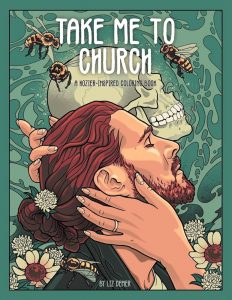 In Body Work by Melissa Febos, she mentions in the chapter “The Return: The Art of Confessions” the ties between love ballads/hymns (which she refers to them as “beggin-ass songs”) and personal essays. In many love ballads, there is this feeling of confession that gives a similar experience when writing essays about your personal life that have not been spoken about to others. Confessing love or any other human experience can make one feel vulnerable yet also cleansed. Febos discusses the work in her previous book, Girlhood, that speaks about many of her traumatic experiences and the emotions it left her with. Unable to call it “trauma” at the time, she found it easier to write the words than to speak it into existence. Writing heals, and it is not just an expression. According to research by a psychologist Pennebaker that was mentioned in Body Work, “Expressive writing about trauma strengthens the immune system, decreases obsessive thinking, and contributes to the overall health of writers.” This feeling of unburdening is greatly tied to love-ballads, that produce the same experience for the listeners as it does in the readers of personal essayists. Febos explains that she has this obsession with the need to be unburden; cleansed by confessing and being born anew as the darkness and secrecy of the past no longer affects the present or future and the path forward becomes brighter and clean.
In Body Work by Melissa Febos, she mentions in the chapter “The Return: The Art of Confessions” the ties between love ballads/hymns (which she refers to them as “beggin-ass songs”) and personal essays. In many love ballads, there is this feeling of confession that gives a similar experience when writing essays about your personal life that have not been spoken about to others. Confessing love or any other human experience can make one feel vulnerable yet also cleansed. Febos discusses the work in her previous book, Girlhood, that speaks about many of her traumatic experiences and the emotions it left her with. Unable to call it “trauma” at the time, she found it easier to write the words than to speak it into existence. Writing heals, and it is not just an expression. According to research by a psychologist Pennebaker that was mentioned in Body Work, “Expressive writing about trauma strengthens the immune system, decreases obsessive thinking, and contributes to the overall health of writers.” This feeling of unburdening is greatly tied to love-ballads, that produce the same experience for the listeners as it does in the readers of personal essayists. Febos explains that she has this obsession with the need to be unburden; cleansed by confessing and being born anew as the darkness and secrecy of the past no longer affects the present or future and the path forward becomes brighter and clean.
I did not feel burdened per se, but if penance was the price of unburdening, I would pay. I did feel burdened. How I wanted to know myself infinitely lovable, wanted to be bathed in the relief of divine love. In the years that followed, I sought this in many ways, and some of them ultimately became the very things I wanted to confess.
There is this power in hymns and love ballads and personal essays that feel as if the writer and the reader are changed after the piece is finished. The work done of “beggin-ass songs” and “personal essays” give people the ability to understand that their yearning and emotions are not experiences that a singular person faces. The collective of humanity have experienced pain, suffering, love, resentment, trauma, and nostalgia. It is a work of empathy to read personal essays and a work of faith that the experiences you are writing are familiar to your audience. When Febos describes her experience when listening to the song “Take Me to Church” by Hozier, she explains how the song gave her an epiphany about her own love life and how her work has become her “Church.” She states in a section of “The Return” the following:
I have worshipped people the way that others worship gods, have looked at humans and chemicals for the kind of love we can only except from a divine source. Our culture encourages this. We think love will redeem us, and it will, but not that of any human lover and not that of any material substance. I have found a church in art, a form of work that is also a form of worship- it is a means of understanding myself, all my past selves, and all of you as beloved.
Words cannot describe how incredibly moved I was when reading this quote. The idea that writing can connect you to other people when it is often something you work on alone shows how art works therapeutically and a way to reach people in unexpected ways.